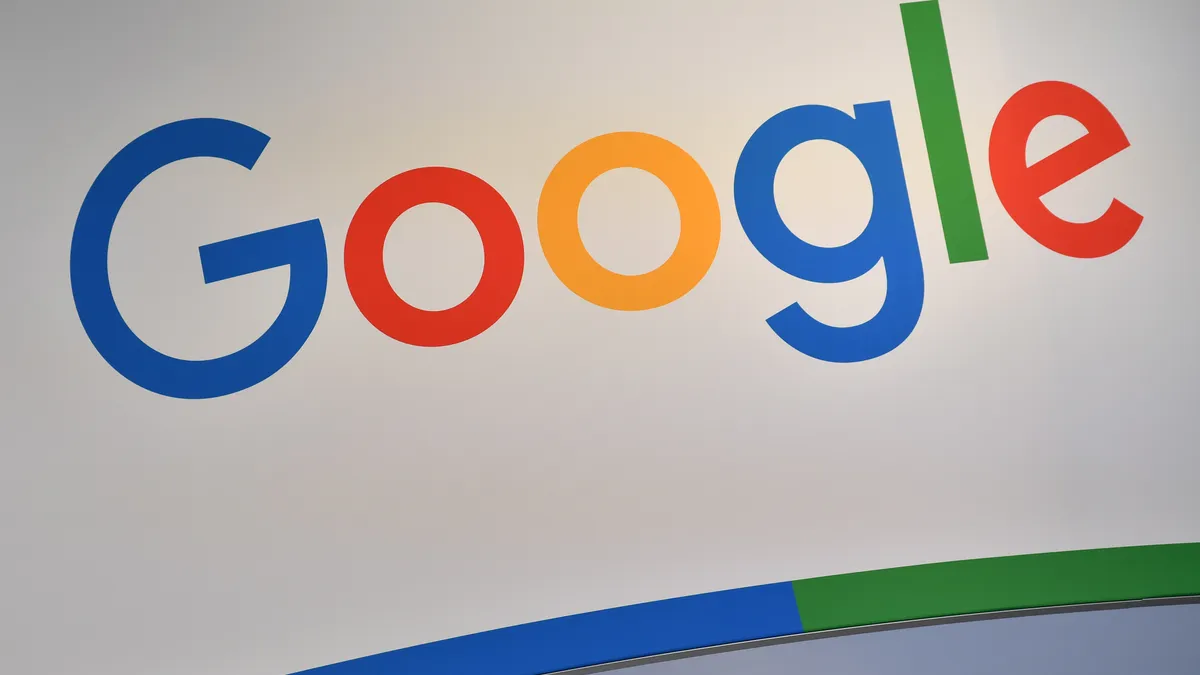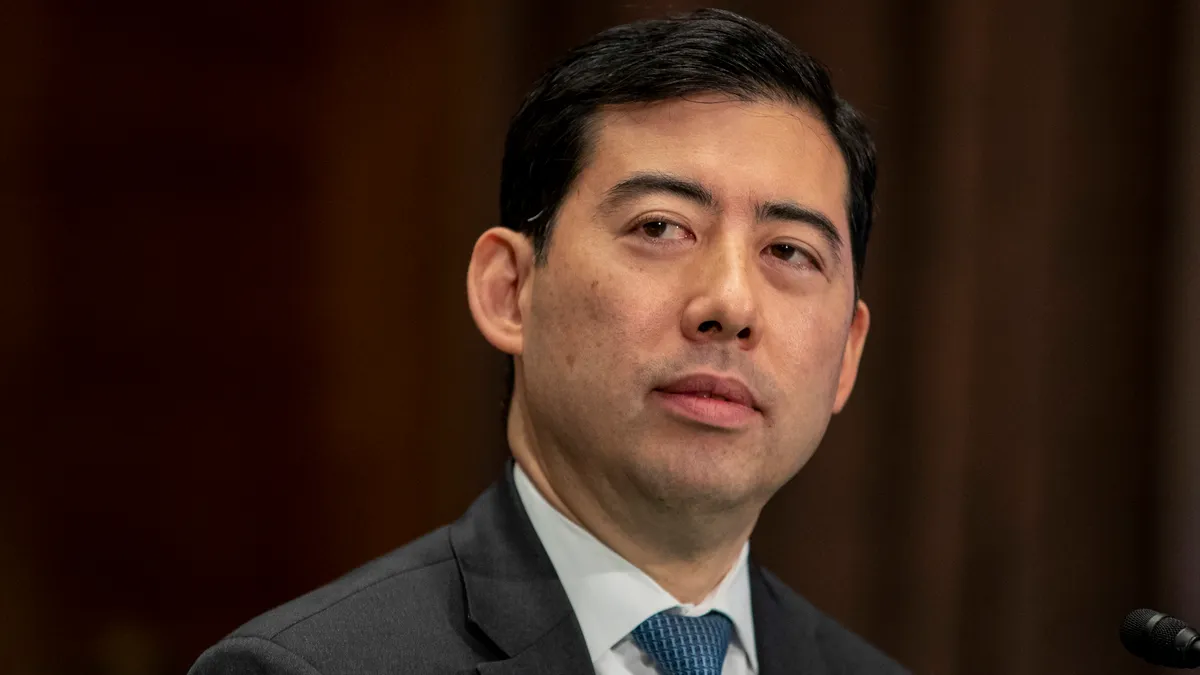The lawsuit by the Department of Justice and several states against Google for the way it maintains dominance in online search goes to trial this week.
It’s in the same U.S. district court, in the District of Columbia, where a landmark antitrust settlement was hashed out 25 years ago when the then-dominant tech company, Microsoft, agreed to change its business practices, effectively paving the way for the rise of a company like Google, analysts have said.
But this time there will be a different outcome, the lawyers representing Google say. Although both cases involve companies using controversial tactics to maintain their dominance, in Google’s case the company’s business practices have been designed to avoid the line of attack that left Microsoft exposed on antitrust grounds.
“We think there are aspects of the Microsoft case that are actually very helpful to us here,” Google’s President of Global Affairs Kent Walker told The New York Times. Walker’s duties include overseeing the company’s legal strategy.
Revenue-sharing agreements
Unlike Microsoft, which leveraged its dominance in operating software to get internet companies to use its browser, Google has built its dominance using revenue-sharing agreements that it argues has created a win for the companies that have made Google their default search engine.
“Like countless other businesses, we pay to promote our services, just like a cereal brand might pay a supermarket to stock its products at the end of a row or on a shelf at eye level,” Walker said in a Wall Street Journal report.
Nor do people feel they’re getting stuck with a search engine they don’t prefer, Walker said. “We continue … to be on the side of trying to make sure people have the products that they want to use,” he told The Wall Street Journal in a separate report.
Self-reinforcing cycle
DOJ and the states joining it filed their antitrust lawsuit against Google in 2020, claiming the company has used these revenue-sharing business agreements to force people to use its search engine by default in what critics call a self-reinforcing cycle of dominance.
One of Google’s first agreements was in the early 2000s with Mozilla, which agreed to make Google the default search engine in its Firefox browser in exchange for a share of search-related ad revenue. In 2007, the company earned about $75 million from the deal, or more than 90% of its revenue, according to an Alphr report. When the two companies renewed their deal in 2011, Mozilla was earning almost $300 million a year from it, Computerworld reported.
Google entered into similar deals with other companies, including Samsung, culminating in its biggest agreement, with Apple in 2005, that made it the default search engine in the Safari browser on personal computers and, two years later, on the iPhone.
Google is expected to pay Apple some $23 billion this year as part of their revenue-sharing agreement, according to Wells Fargo data reported by The Wall Street Journal.
In its complaint, DOJ says the agreements amount to illegal tying arrangements that “lock up distribution channels” and block rivals. “Google relies on its preinstallation and default restrictions in its revenue sharing agreements as a ‘strategic defense’ against rival keyboards that might provide a ‘[b]ridge’ to rival general search engines,” DOJ says.
That’s given Google a “stranglehold on major distribution points for more than a decade," Kamyl Bazbaz, a spokesperson for DuckDuckGo, a rival search engine company, says in a Reuters report. “Google makes it unduly difficult to use DuckDuckGo by default.”
Google’s share of search traffic is about 90%, a level it’s maintained over the last decade, according to Statcounter.
Tough battle
To the extent DOJ is planning to attack Google on the basis of its revenue-sharing agreements, it could find it hard going, the lawyers defending Google say.
That’s in part because Walker and others working on behalf of the company, including outside counsel Susan Creighton of Wilson Sonsini Goodrich & Rosati, have applied their experience from their days working on the Microsoft case to structure the agreements in a way they believe will pass antitrust muster.
Both Walker and Creighton worked on the legal team at Netscape, then a big browser company, that helped the DOJ take on Microsoft.
“The Justice Department’s arguments against Google rest on outdated assumptions from the 1990s, when it was difficult to switch between rival internet services,” the Journal says, paraphrasing Walker. “Google’s contracts with Apple and others are open to competing bidders, and it is easy to switch default search engines.”
Walker and Creighton, the Journal reported, along with other veterans from the Microsoft battle, “are now using the precedent they helped set in that case to try to unravel the Justice Department’s arguments.”
Among other things, Google plans to show Microsoft users prefer Google over the company’s Bing search engine and that Mozilla’s Firefox browser once briefly favored Yahoo’s search engine before switching back to Google as evidence that the market is working, the Journal reported.
Google has already scored a number of wins in defense of its search engine strategy. A decade ago it worked out a deal with the Federal Trade Commission to avoid an antitrust lawsuit over its search dominance, and it worked out several deals with antitrust agencies outside the United States. In a handful of European cases, it paid fines but it hasn’t had to change its business practices.
“The cases haven’t left a big imprint on Google’s businesses there,” the Journal reported.
The company is facing another DOJ antitrust lawsuit, over the way its online ad sales infrastructure has reinforced its dominance in that market, but that case is still in its early stages.
One line of attack against the company that is expected to cause it trouble, in both antitrust cases, is its failure to save all of its employees’ internal chats subject to discovery. The judge in a third antitrust case against the company, James Donato of the U.S. District Court of the Northern District of California, has called out the company for allowing employees to let their chats disappear without record after 24 hours.
“The intentionality manifested at every level within Google to hide the ball with respect to Chat” is a major concern, Donato said.
That case was brought by Epic Games in its battle with the company over how Google treats rivals on its Play Store app platform and it’s pending, but the criticism directed at the company for not preserving internal chats has been called out in these two DOJ cases as well.
The trial timeline for the case that begins this week extends into November. U.S. District Judge Amit Mehta is presiding.



















